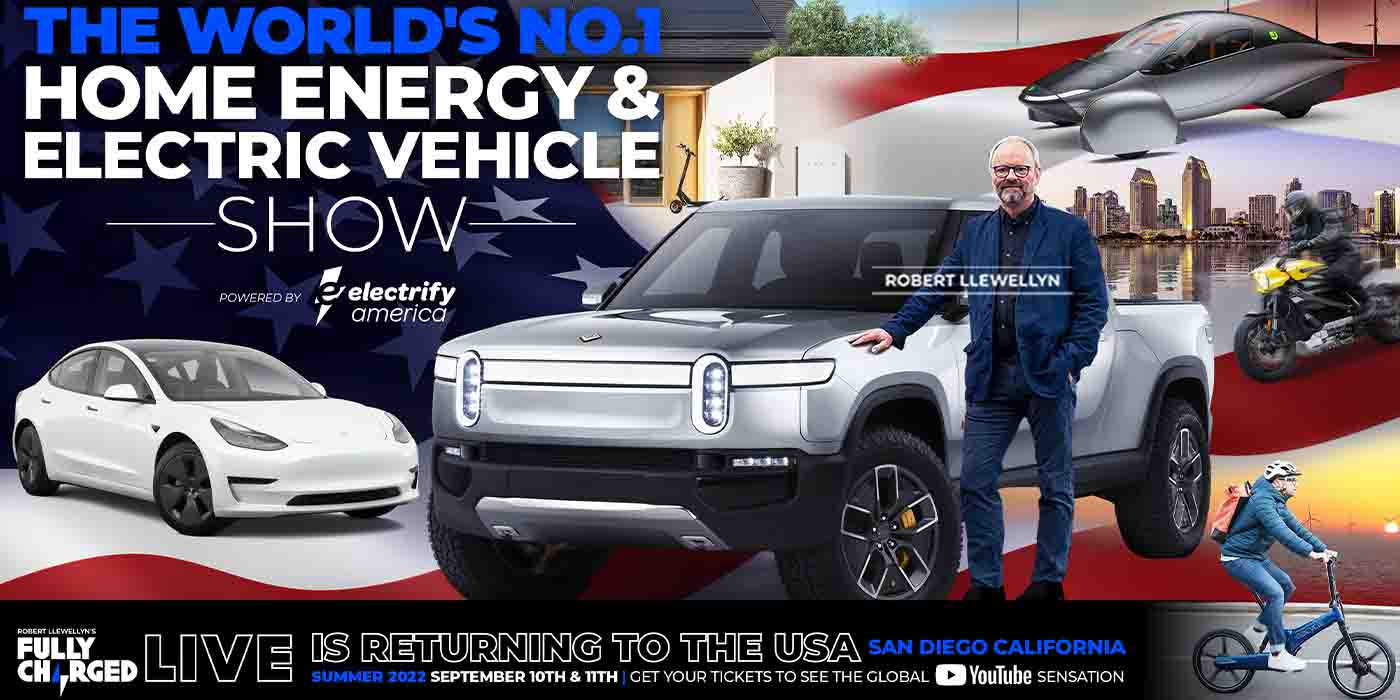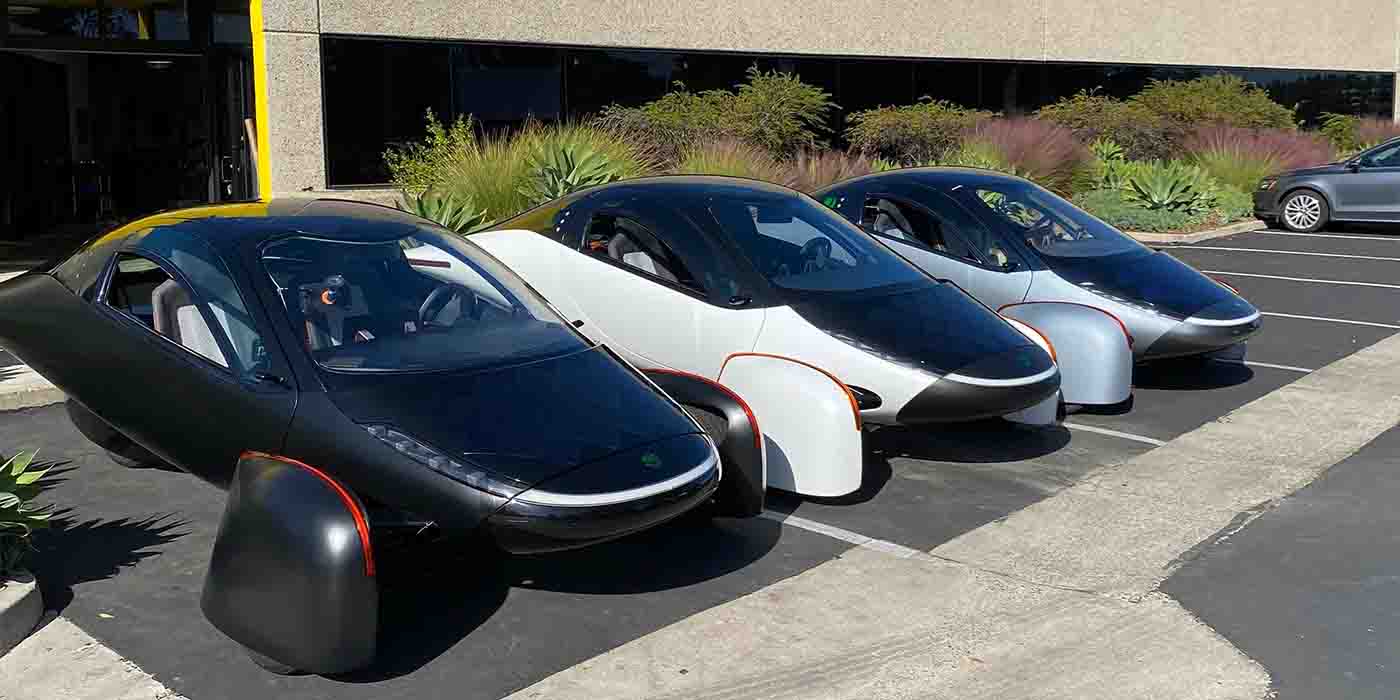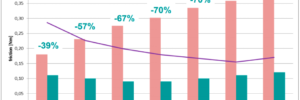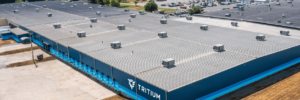Together with the previously announced investment in battery systems for hybrids, the company will invest $3.8 billion in the plant.
Source: Electric Vehicle News
Lucid Will Raise Another $8 Billion Via A New Offering
This comes as no surprise since it also appears Lucid is planning a massive expansion at its Arizona factory.
Source: Electric Vehicle News
Fully Charged Live returns to the US September 10-11 in San Diego – come see us!

Join Electrek and the crew from FullyCharged.SHOW for Fully Charged Live, coming to the San Diego Convention Center September 10-11. Here’s what you can expect to see.
The post Fully Charged Live returns to the US September 10-11 in San Diego – come see us! appeared first on Electrek.
Source: Charge Forward
Polestar to supply batteries and charging systems to electric hydrofoil maker Candela
Swedish electric car OEM Polestar (Nasdaq: PSNY) has signed a multiyear agreement to supply battery and charging systems to Candela, a Swedish maker of electric hydrofoil boats. The agreement to supply battery technology to a third party is a first for Polestar.
Candela says its electric boats “fly” above the surface, using computer-guided hydrofoils that lift the hull above water, and consume up to 80% less energy at high speeds compared to traditional motorboats, while delivering a smoother cruising experience and more passenger comfort.
Candela introduced its first production model, the C-7, which offered a range of 50 nautical miles at 20 knots, in 2019. In 2021, the company launched the C-8, which has space for eight passengers, a range of 50 nautical miles at 22 knots, and a top speed of 30 knots. It is powered by the Candela CPOD, an electric pod motor developed in-house. In 2022, Candela plans to launch the Candela P-8 Voyager taxi boat and the P-12 electric ferry.
“I am fascinated by the way Candela’s boats glide elegantly and efficiently through, or better, over the water—amazing proof of the great aesthetics and experiences modern, sustainable technology can create,” said Polestar CEO Thomas Ingenlath. “As a battery supplier to Candela, we can help drive the transition to cleaner oceans and lakes, and electrify waterborne transport.”
“Polestar is a dream partner for us,” said Candela CEO Gustav Hasselskog. “While electrification of cars has come a long way in the last few years, the marine sector has fallen behind. Marrying our efficient hydrofoil technology to high-capacity batteries from Polestar means we can speed up the mass-market adoption of electric boats together.”
Source: Polestar
Source: Electric Vehicles Magazine
KACO’s second-gen structured mechanical seals for internal rotor cooling
Sealing technology firm KACO has introduced the second generation of its structured mechanical seals for internal rotor cooling.
“Following the successful market launch of the first generation of mechanical seals for internal rotor cooling, KACO has significantly improved these systems by consistently optimizing the microstructures in terms of occurring power losses,” says the company, which used CFD simulations to redevelop the microstructuring of the seals.
“By consistently balancing simulation and testing, we have succeeded after less than a year in reducing friction losses to almost a third and at the same time, depending on the seal size, in reducing the technical leakage occurring in some test cycles to a level that can no longer be measured,” says VP of Research and Development at KACO Andreas Genesius.
KACO says the second-generation seal “shows potential savings in power losses of 50-70% compared to the current state of the art in series production.”
“The significant savings in power losses at the sealing system create a new attractiveness of direct internal rotor cooling in terms of range optimization of the vehicle,” says KACO.
Source: KACO
Source: Electric Vehicles Magazine
Tritium opens fast charger factory in Tennessee
Charger manufacturer Tritium (Nasdaq: DCFC) has opened its first US-based charger manufacturing facility in Lebanon, Tennessee. The facility is expected to create over 500 jobs over the next five years.
Tritium’s Tennessee facility will initially produce the company’s RTM fast charger, and is expected to start producing the PKM150 early next year. These DC fast chargers are compatible with all EVs, and are expected to fulfill requirements for federal support under the Inflation Reduction Act. Tritium’s PKM150 fast charger is also expected to meet Federal Highway Administration Buy America Act standards in Q1 2023, making it suitable for National Electric Vehicle Infrastructure program funding.
Tritium says its top-of-the-line PKM150 charger marks “a significant improvement in EV charging technology, providing customers with flexibility when creating charging sites.” Up to four PKM150 fast chargers can be connected to one power cabinet, saving money on equipment, installation and maintenance. The PKM line of chargers features swappable modules that are designed to be replaced in minutes. Customers can choose 100 kW or 150 kW of dual-cable charging station power depending on their needs.
“The opening of our Tennessee factory is an important milestone for Tritium, for Tennessee and for American drivers,” said Tritium CEO Jane Hunter. “When we make chargers here in the US, we reduce supply chain and shipping delays, and we help build the manufacturing ecosystem that will employ more Americans.”
“Like our products, we’ve designed our manufacturing process to be modular and scalable,” said Tritium COO Glen Casey. “This design allowed us to bring the Tennessee factory online in five months.”
Source: Tritium Charging
Source: Electric Vehicles Magazine
Toyota changes tune on EV demand, triples funding for US battery plant
In a strange series of events, Toyota is changing its stance on electric vehicles as the Japanese automaker announced Wednesday it will be tripling its planned investment in its new battery manufacturing plant in North Carolina.
The post Toyota changes tune on EV demand, triples funding for US battery plant appeared first on Electrek.
Source: Charge Forward
Aptera reopens investments to bring its 1,000-mile-range solar electric vehicle to production

Aptera has reopened investments to the public as it tries to secure more money to bring its 1,000-mile-range solar electric vehicle to production.
The post Aptera reopens investments to bring its 1,000-mile-range solar electric vehicle to production appeared first on Electrek.
Source: Charge Forward
Rivian R1S Review On TikTok Is Creative And Fantastic
Who says you can’t review the fully electric Rivian R1S three-row SUV in just over one minute?
Source: Electric Vehicle News
US: The Number Of EV Models With 300+ Miles Of Range Tripled in 2022
200-250 miles is becoming the base, while the top models might exceed 400 or even 500 miles.
Source: Electric Vehicle News




